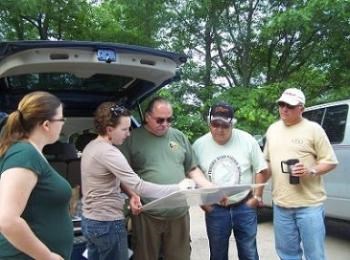
NPS Photo
RESEARCH
Research helps National Park Service (NPS) decision-makers understand what's important to groups with special interests in parks, such as tribes and other distinct cultural communities.The NPS Cultural Anthropology Program supports original research through funding provided to parks, and by supporting partners in educational institutions. Making people partners in the process—and sharing information—can create productive long term relationships between associated communities and parks.
CONSULT
Cultural anthropologists facilitate consultation with tribes and other distinct cultural communities in park planning, operations, and interpretation. For example, meetings with the Gullah Geechee peoples—direct descendants of enslaved Africans on the southeast coast of the United States—yielded maps of culturally important African American sites in traditional rice-growing regions.
COORDINATE
Cultural anthropologists coordinate with a broad range of NPS programs and staff—notably park planners, interpreters, archeologists, landscape specialists, and natural resource professionals to bring knowledge of contemporary cultural communities to park management. Anthropologists frequently facilitate relationship-building between parks and communities.
FORMULATE POLICY
The NPS is committed to a policy of inclusiveness through research, planning, stewardship, and consultation. Particular attention is given to respectful treatment of sacred places. Cultural anthropologists help to highlight the significance of living heritage in policy development.
Last updated: August 18, 2021
